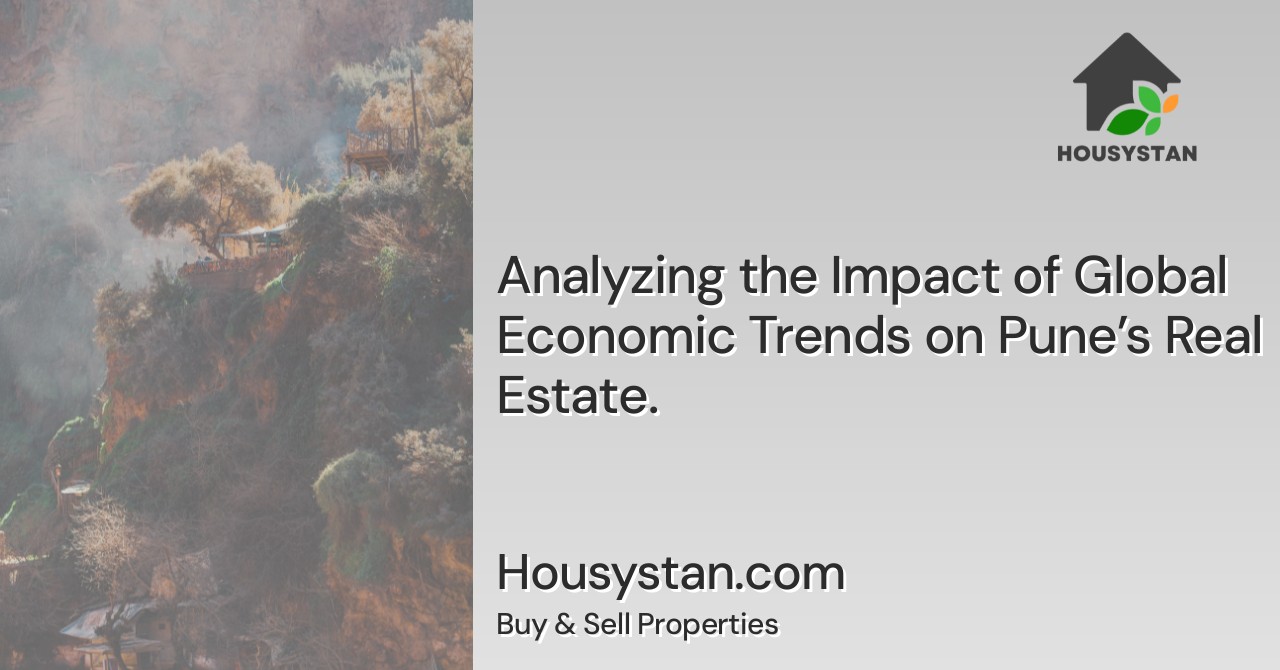Analyzing the Impact of Global Economic Trends on Pune’s Real Estate
Read latest blogs and articles from Housystan

The Information mentioned here was last updated on:
25/1/2026Analyzing the Impact of Global Economic Trends on Pune’s Real Estate
Pune has emerged as one of India’s fastest-growing real estate markets, attracting attention from both investors and homebuyers. As global economic patterns shift, Pune’s property landscape is directly influenced by these changes. Understanding how international economic trends affect local real estate is crucial for anyone considering buying, selling, or investing in this vibrant city.
Global economic developments, such as fluctuations in interest rates, changes in foreign direct investment, and evolving geopolitical scenarios, play a significant role in shaping Pune’s realty sector. When international markets experience volatility, the ripple effects often reach Indian cities, including Pune. For instance, a rise in interest rates in major economies like the United States or Europe can impact borrowing costs locally, subsequently influencing home loan rates and buyer sentiment in Pune.
- Verified Tenants/Buyers
- Unlimited Property Listing
- Zero subscription/charges fee
Similarly, foreign direct investment (FDI) trends are essential to monitor. When global investors seek stable and growing markets, cities like Pune benefit from an influx of capital that boosts development projects and infrastructure. This not only increases property values but also enhances the overall quality of life, making Pune an attractive destination for professionals and families alike.
Additionally, global economic uncertainty, such as trade tensions or supply chain disruptions, can lead to shifts in demand for commercial and residential properties. Pune, with its thriving IT and manufacturing sectors, often experiences changes in housing demand as multinational companies expand or contract operations in response to global conditions. This dynamic relationship means that both short-term fluctuations and long-term global trends must be considered when evaluating Pune’s real estate market.
For buyers, sellers, and investors in Pune, staying informed about international economic indicators is essential. By closely tracking global trends and understanding their local implications, stakeholders can make informed decisions, maximize returns, and minimize risks. Pune’s real estate sector remains resilient, but its future trajectory will undoubtedly continue to be shaped by economic forces beyond India’s borders.